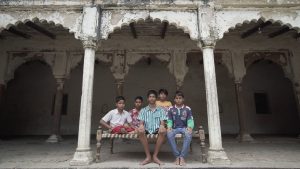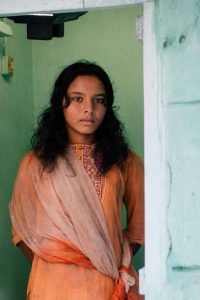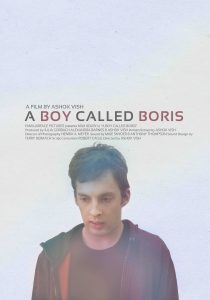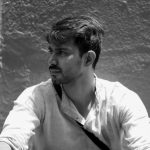As a film enthusiast since my younger years and with a background in filmmaking, I became fascinated early on about filmmakers considered as auteurs. Filmmakers whose work you could pinpoint as their own by simply seeing a single visual, a single scene or just hearing about the plot. Think Fassbinder, Burton, Wes Anderson, and the Dardenne brothers as a few examples. After probing further into this fascination, it always boiled down to the style of the films or the themes explored that awarded them with the distinction of being called an auteur. This got me thinking in depth about themes. “Themes are the fundamental and often universal ideas explored in a work, usually implied rather than explicitly stated. Deep thematic content is not required in a work, but the great majority of works have some kind of thematic content, not always intended by the author.”
Of course, I don’t mean to selectively talk about just filmmakers, as this is just as fascinating to me with respect to all kinds of artists producing work. Let me broaden the perspectives on this through some questions. How does an artist choose particular individuals as friends? Why does an artist choose to work on a specific subject matter? What deeper ties or mutual concerns did the artist have with them? How did the chosen friends or subjects fit with the artist’s personality? Why do certain themes attract the artist so persistently? Why was the artist more open to influence by certain sources rather than others? Why is an artist more touched or inspired by one issue over the other?
Such questions race through my mind when I consider my own work or when I see other artists’ work. Again, I pose these as questions rather than realized statements (just like in my first blog post) because to me the answers to such questions are not carved in stone. To find answers to these and other questions, immersion in biological material is key. Such material can be found from the earliest years of the artist’s life, or from their tumultuous or happy teenage years or during any stage (really) throughout their lives. Whatever one can learn about the artist’s immediate family, especially the environment of childhood and youth, the artist’s circle of friends or lack thereof - any physical, emotional, and cultural influences could ideally give us a glimpse into the themes that they consciously or subconsciously keep exploring in their work.
I have attached a few images (from my films+videos) of mine that deal with children or minors less than eighteen years of age. It was only until recently that a mentor of mine pointed out that most of my work has involved issues related to children or teenagers. It had never occurred to me on my own. After I was made aware of this, the concept of themes became heightened in my mind, which is why I decided to create this blog post. I would like to believe that an artist’s unconscious fantasies are at the heart of his/her body of works and constitute the core of the artist’s thematic preoccupations.





Hello Ashok,
Your questions are quite critical and I think it sub consciously exists in the minds of all who are involved in the creative field. Like you said, “Filmmakers whose work you could pinpoint as their own by simply seeing a single visual, a single scene or just hearing about the plot”. I associate this identity of an artist in accordance with his/her language(visual/concept).Thinking on the same line about Kurosawa or Tarkovsky or even artists like Anish Kapoor, Rothko, Subodh Gupta and many many more. The moment I come across a few frames or a single work I can easily tell that it’s theirs.
My take though is that language as a form of identity in the 21st century is quite a difficult thing to establish. I mean to develop something so unique that it is not done by none so far, that it can be traced instantly to the artist who has created it, is a difficult thing to do at such times.I think that our imagery or visuals derives itself from various sources of the past, in the process there is filtering, altering, manipulation to form a language that we can probably pronounce as ours own. I think this whole process of creating a language by borrowing from certain sources is quite interesting. To be able to acknowledge and question those very sources can itself bring us to understanding what kind of a language or theme, as you’ve mentioned, do we feel more connected to and why.
For me also I would say that childhood did have a big influence on the themes I deal with. I was the youngest of 5 children and there was a big age gap. I also lived quite rurally so despite having a large family I spent a lot of my childhood on my own and very much became dependent on my imagination and my self. I feel very much that I have an inner and outer self public and private.
And I often feel quite conflicted between the urge to connect and the urge to retreat.
I feel safer I suppose with my own company. It was also a reason I turned to art in the first place as it was an area where I could sort out and explore ideas through creative, individual and investigatory means.
I haven’t before thought about how I chose my friends that is a very interesting question that I will have to think about! Louise Bourgeois is an artist I think of on this topic. I think her work is quite recognizable and she talks a lot of the direct influence of her childhood and her unconscious.
The art story do brief mind maps on artists influences and friends. http://www.theartstory.org/artist-bourgeois-louise.htm
Kate, I am quite excited to say that we have quite a bit in common. I am ALSO the youngest of 5. There is also a large age gap between me and my other siblings. The age gap between my oldest sister and myself is 14 years. I didn’t really grow up rurally but rather in a busy town, but I did spend a lot of time alone as all my siblings were living in the USA when I was in India.
Thanks for sharing Louise Bourgeois’s work. I really like her work as well, and love that her work is so influenced by her childhood.
Ashok hello, Thank you for sharing your works with us, do post links so we can see them as well. When you talk of the auteur filmmaker one name that pops straightaway to mind (and this is a favourite film maker) is that of Satyajit Ray. Considered to be one of the greatest filmmakers of twentieth century, according to me Ray was the true auteur. From writing his film and television script, to creating detailed storyboards, making his own background score, designing the costumes he did everything, and beyond this he was also a fiction writer, publisher, illustrator, calligrapher, music composer, graphic designer and film critic. The kind of work he could get from his child actors is simply spell-binding. His work is easily recognizable from a single frame or even the soundtrack. Anyway, I mention him for a reason, Ray, became determined to be a filmmaker after attending a screening of the Bicycle Thieves. I quote Ray here… “I came out of the theatre with my mind firmly made up. I would become a filmmaker. The prospect of giving up a job didn’t daunt me anymore. I would make my film exactly as De Sica had made his: working with non-professional actors, using modest resources, and shooting on actual locations. The village which Bibhutibhushan had so lovingly described in Pather Panchali (The song of the Road) would be a living backdrop to the film, just as the outskirts of Rome were for De Sica’s film.” “For a popular medium, the best kind of inspiration should derive from life and have its roots in it. No amount of technical polish can make up for the artificiality of theme and dishonesty of treatment. The Indian filmmaker must turn to life, to reality. De Sica, and not DeMille, should be his ideal.” I think this echoes what you feel about the raison d’être behind any artists creations.
Sharing a couple of links, the first is Martin Scorsese talking about Ray and the second link is to the film Scorsese talks of, which also a great favourite of mine Shatranj Ke Khiladi ( The Chess Players)
https://www.youtube.com/watch?v=v5V7H4VPbXo
https://www.youtube.com/watch?v=A3Fgm0yaWbA&t=1525s
Hello Ushmita. Thank you for responding. I couldn’t agree with you more about Satyajit Ray. I can’t even fathom the amount of talent Mr. Ray possessed when it came to artistic creation. One of my favourites of Satyajit Ray has to be The Music Room. He is definitely the pioneer behind the emergence of independent cinema here in India.
Thank you very much for sharing all those links.
Hi Ashok,
I like what you wrote and I also like the images of your film/movies.
Is there a possibility to share your movies?
Hi Tatjana. Thank you so much! You can see some of my videos + films here: https://vimeo.com/ashokvishfilms
it is a very interesting post, according to me also my childhood, unconscious fantasies , obsessions plays an important role in my works , I question my self a lot about everything, like you question your self , questioning is very important for me, because for me when I question I am asking myself about myself and nobody can answer that better than me, sometimes I find the answer through any medium whether it can be seeing a film or, drawing, writing, or just thinking , but the answer comes from inside me only .
the area of your work is also very interesting. where I can see the film which u have mentioned above?.
Hi souvik, thank you for writing. Questioning is indeed important and constantly raising questions to yourself does wonders to your own development as a person and as an artist.
Here is my vimeo page where you can see some of my videos + films: https://vimeo.com/ashokvishfilms
Hello Ashok,
I totally agree with what you wrote in your third paragraph. Immersion in biological material is the key to find answers to the questions such as why a specific subject matter and why one issue emphasized over the other. When I was a child, I lived close to a slaughterhouse and saw the crucial scenes of how cows are killed. This experience brought the “better treatment to animal” a major theme in my early art practice. Even today my works are more focusing on the issue in human’s society, but I still very often to use animal figures as metaphors.
Dengke
Hi Dengke. Thank you for writing. I am glad you were able to relate to this post and continue to produce work based on your childhood experiences that helped shape your thinking. I definitely do the same. If it isn’t a specific issue explored, a lot of my work has involved children which goes to say that my childhood experiences had a major influence on my thematic preoccupations.